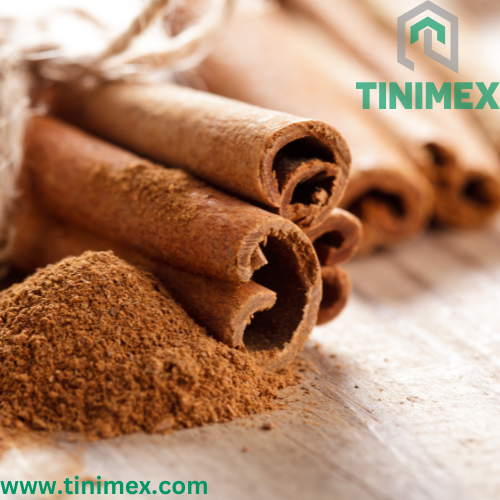Managing Diabetes Naturally: Cinnamon’s Impact on Blood Glucose
In the pursuit of natural diabetes management, more individuals are exploring alternative remedies and dietary adjustments to complement their treatment plans. Cinnamon, a fragrant spice commonly found in kitchens worldwide, has garnered attention not only for its delightful flavor but also for its potential influence on blood glucose levels. In this article, we delve into the connection between cinnamon and diabetes management, delving into the scientific basis and offering practical advice on integrating cinnamon into your daily routine.

Understanding Diabetes
Before we delve into cinnamon’s role, let’s briefly grasp the concept of diabetes. Diabetes is a chronic medical condition characterized by elevated blood glucose levels, often referred to as blood sugar. There are two primary diabetes types: Type 1 and Type 2.
– Type 1: diabetes is an autoimmune disorder in which the body’s immune system mistakenly attacks and destroys insulin-producing cells in the pancreas. Individuals with Type 1 diabetes require insulin injections to control their blood sugar levels.
– Type 2: diabetes is a metabolic disorder that typically develops later in life and is often linked to lifestyle factors such as poor diet, lack of physical activity, and obesity. In Type 2 diabetes, the body either produces insufficient insulin or becomes resistant to its effects.
Maintaining stable blood glucose levels is vital for people with diabetes to prevent complications such as heart disease, kidney issues, and nerve damage.

The Connection Between Cinnamon and Diabetes
Cinnamon has a long history in traditional medicine for its potential health benefits. Recent scientific studies have begun to explore the relationship between cinnamon and diabetes management, yielding the following findings:
1. Cinnamon Enhanced Insulin Sensitivity
A significant discovery is that cinnamon may improve insulin sensitivity. Insulin is a hormone that regulates blood sugar by facilitating glucose uptake into cells. In Type 2 diabetes, cells may become resistant to insulin, reducing its effectiveness in lowering blood sugar levels. Compounds in cinnamon may enhance this sensitivity, making insulin work more efficiently.
2. Cinnamon Blood Sugar Reduction
Multiple studies suggest that cinnamon may reduce fasting blood sugar levels in Type 2 diabetes patients. Cinnamon contains bioactive compounds that mimic insulin’s effects, potentially decreasing the amount of glucose entering the bloodstream after meals.
3. HbA1c Level Reduction
Hemoglobin A1c (HbA1c) is an indicator of long-term blood sugar control. Elevated HbA1c levels correlate with a higher risk of diabetes-related complications. Some research suggests that cinnamon supplementation may lead to a modest decrease in HbA1c levels over time.
Antioxidant and Anti-Inflammatory Properties
Cinnamon is rich in antioxidants, vital for shielding cells from oxidative damage. Chronic inflammation is a common factor in diabetes and its complications. Cinnamon’s anti-inflammatory properties may help alleviate some of these effects.
Incorporating Cinnamon into Your Diabetes Management
If you’re contemplating adding cinnamon to your diabetes management regimen, here are some SEO-friendly tips:

1. Opt for Ceylon Cinnamon:
Choose Ceylon (true cinnamon) over Cassia, as it has lower coumarin content and is considered safer in larger quantities.
2. Start Small Cinnamon:
Begin with a small amount of cinnamon and monitor its effects on your blood sugar levels, as individual responses vary.
3. Sprinkle on Food Cinnamon:
Incorporate cinnamon into your diet by adding it to oatmeal, yogurt, smoothies, or even savory dishes like roasted vegetables.
4. Cinnamon Tea:
Consider brewing cinnamon tea by steeping cinnamon sticks in hot water, offering a flavorful and soothing way to include it in your routine.
5. Cinnamon Consult Your Healthcare Provider:
Before making significant dietary changes or introducing supplements, consult your healthcare provider, especially if you’re taking diabetes medications.

In Conclusion
Cinnamon, with its potential to enhance insulin sensitivity, lower blood sugar levels, and provide antioxidant benefits, offers promise as a natural complement to diabetes management. It’s not a substitute for prescribed treatments but can be a valuable addition to your overall diabetes management strategy.
Remember that responses to cinnamon can vary, so closely collaborate with your healthcare team to monitor your progress and make informed decisions about its inclusion in your diabetes management plan. As with any dietary changes, moderation and consistency are crucial for success.
Related News:
1. Shiny Strands: How Cinnamon Benefits Hair Health
2. Cinnamon’s Role in Cardiovascular Wellness: Heart Health Benefits
3. The Healing Brew: Exploring Cinnamon Tea Benefits



